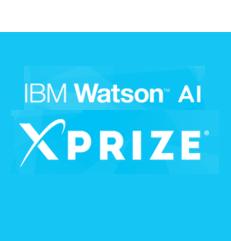| Get Involved With AI XPrize |
| Written by Sue Gee |
| Monday, 17 October 2016 |
|
The registration deadline for the IBM Watson AI XPRIZE has been extended by six weeks in the hope of attracting more teams to participate. Submissions now need to be made no later than January 15, 2017 with Early Bird Registration closing on November 15, 2016.
With all the interest in AI you would imagine that people would be unable to resist the lure of big prize money and a chance to make an impact on some of the worlds big problems. But four months after registration for this contest opened in June, just three teams are listed on the competition website. The contest originally had the tag line A Cognitive Computing Competition, see IBM Watson AI XPRIZE Announced, and was announced at TED2016. This may have been part of its problem as two year's previously, TED sponsored an AI XPrize: ...for the development of artificial intelligence (AI) so advanced that it could deliver a compelling TED Talk with no human involvement. In reporting this, see Robot TED Talk - The New Turing Test? I Programmer eiditor Mike James made the scathing comment: You would think that the Xprize organization would know better after setting up prizes for things that really do advance technology. For example, in 2004 SpaceshipOne was awarded $10 million for being the first private rocket to fly to the edge of space and back twice within a week. Somebody appears to have taken this criticism to heart as that XPrize idea has quietly been dropped and, when registration for the IBM Watson AI Prize opened in June, it was in keeping with the XPRIZE organization's mission statement of being an educational nonprofit organization which manages large-scale, high-profile, competitions in order to "bring about radical breakthroughs for the benefit of humanity", as you can appreciate from this description: The IBM Watson AI XPRIZE is a $5 million competition, challenging teams globally to develop and demonstrate how humans can collaborate with powerful AI technologies to tackle the world’s grand challenges. The prize aims to accelerate adoption of AI technologies and spark creative, innovative, and audacious demonstrations of the technology that are truly scalable and solve societal grand challenges. The one respect in which it differs from other XPRIZE competitions, and conforms to the outline from TED 2016 is that it isn't "prescriptive", in other words there are no suggestions, about what participants should do. Instead: To encourage innovation in any form, the competition is an open challenge in AI. Rather than set a single, universal goal for all teams, this competition will invite teams to each create their own goal and solution to a grand challenge. Maybe this was just too vague and at the same time as extending the deadline the AI XPRIZE website added a video in which Peter Diamandis, Founder and Executive Chairman, XPRIZE, Ray Kurzweil, Co-founder & Chancellor, Singularity University,and Stephen Gold, CMO, IBM Watson share their thoughts on why this competition is important, why you should compete and also provide some ideas of the sorts of problems contestants could tackle:
The Updated Guidelines also outline what competition plans are expected to include:
One possible deterrent to getting involved is the generous time scale. This is a four year contest with annual milestone competitions in 2017 and 2018. For Round 3 in 2019 the Judging Panel will select 10 Semifinalists to compete in public at IBM World of Watson (October 2019), and 3 Finalists will be chosen on January 15, 2020 to compete in Round 4 at TED 2020. For students, and those at the start of their careers, being committed over a 4-year period may simply be too demanding. The remaining barrier to participation may be cost. The email announcing the deadline extension, which was sent to people who had shown an interest in the contest but not followed through by forming or joining a team and making a submission, points out the advantage of "Early Bird Registration", which has been extended to November 15, is that you can save $500 on the full registration price of $1,500. Bear in mind, however, that this is per team rather than per team member. More InformationRelated ArticlesIBM Watson AI X-PRIZE Announced Robot TED Talk - The New Turing Test?
To be informed about new articles on I Programmer, sign up for our weekly newsletter, subscribe to the RSS feed and follow us on Twitter, Facebook, Google+ or Linkedin.
Comments
or email your comment to: comments@i-programmer.info |
| Last Updated ( Monday, 17 October 2016 ) |



